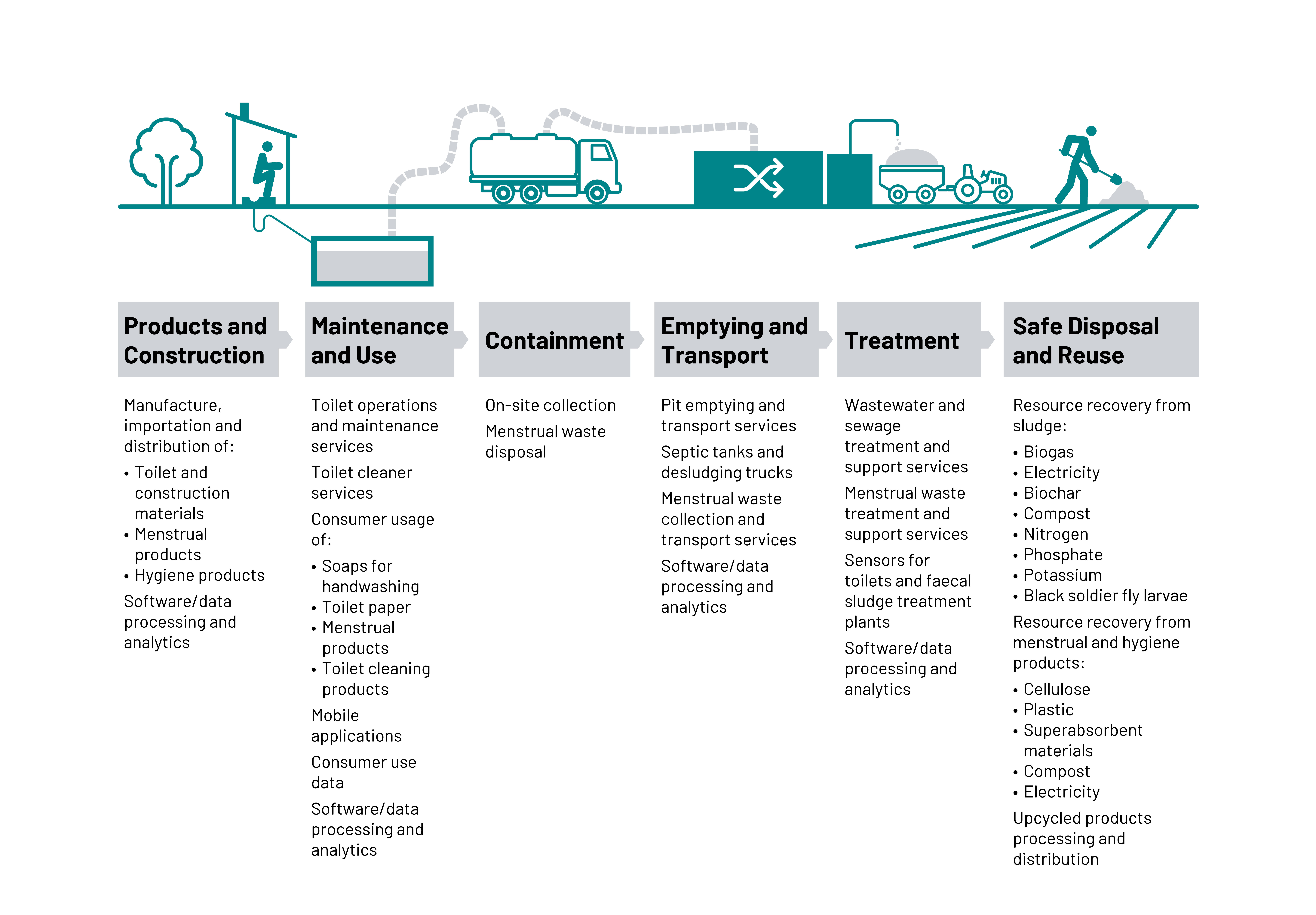Next Generation Sanitation (NGS) encompasses a new fit-for-future approach to sanitation that places people, innovation, circularity, financial and environmental sustainability, and gender responsiveness at its core.
Sanitation and hygiene have the power to define the quality of our lives, the health of our communities, and the future of our planet. But to achieve equitable access, especially in lower-income contexts, a radical departure from the way we approach, and finance, sanitation and hygiene is needed.
The current approaches to expanding access to safely managed sanitation are not delivering the pace and scale of the change that is required.
Next Generation Sanitation, or NGS, builds on the learnings of previous approaches to adhere to six principles fundamental to future-proofing sanitation, and societies and economies.
1 - Innovative Technologies and Solutions
At the heart of NGS are non-sewered sanitation systems, including decentralized, off-grid, and on-site technologies and solutions. NGS focuses on existing scalable solutions as well as new innovations which are the only viable way to significantly increase access to safely managed sanitation in the Global South. For example, the Government of Kenya aims to achieve 60% of safe sanitation coverage through NGS solutions, with the remaining 40% provided by a sewerage network.
2 - Sustainable and Scalable financing
NGS represents a unique investment opportunity and a business response to the global sanitation and hygiene crisis. It is an approach that emphasizes both meeting the present need and ensuring there is a system in place to continue addressing it, sustainably.
At SHF, this principle is captured in our work with countries and partners to develop tailored technical assistance (TA) packages to support the development of viable, scalable business and impact models in sanitation and identify the right catalytic financing modalities - including public-private partnerships, blended finance, impact investing, and microfinance.
We are collaborating with subnational actors to enhance local capacity for sanitation investment planning and project financing. Through customized capacity-building and financing, SHF ensures the development of effective models and supports technological innovations that make sanitation services more efficient and affordable in line with NGS principles.
Read more about our Catalytic Financing approach here
3 - Climate, Environment, and Circular Economy
NGS provides significant investment potential with broad societal and economic benefits while reducing environmental impact and enhancing climate resilience. It adapts to current and future water availability, flood risks, and other natural disasters.
By developing circular sanitation economies, NGS adds environmental and climate benefits to the economic gains from job creation and local activity along every step of the value chain. NGS systems go beyond waste management; they reclaim and repurpose waste, aiming for scale and sustainability by reconfiguring the sanitation value chain and activating local markets.
Read more about sanitation, climate, and sustainability here.
4 - Sustainable operations & maintenance
As with financial and environmental sustainability, NGS places a strong emphasis on continuity of operations and maintenance. NGS, and SHF’s work with countries on it, is aimed at strengthening the entire sanitation value chain, ensuring that facilities are not only built but also maintained, emptied, and kept durable, with waste collected, transported, and treated for reuse. This approach ensures that communities benefit from sustainable access to sanitation products and services, safeguarding their health and well-being, as well as the environment.
5 - Gender responsive sanitation
Investing in NGS is investing in women and girls. It involves providing products and services that meet the specific needs of women and girls as consumers while ensuring that women are part of decision-making processes, that they have access to adequate financing as business owners, and that they benefit equally from job opportunities in the sector.
Read more about our gender responsive approach here.
6 - User preference
At the core of NGS are people. NGS prioritizes the preferences of users based on their specific contexts, cultures, and challenges and aims to provide them with the sanitation services they want and need, sustainably.
At SHF, we are working with countries looking to grow their sanitation economies based on these user preferences and needs. The dignity of people is paramount: while being product agnostic, through NGS, we aim to ensure that the sanitation products and services being scaled with SHF support are adapted to country contexts and to the community, accessible to all, taking in particular gender considerations into account.

